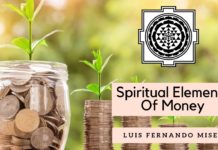Most people know what veganism is but I know very few people who can define capitalism without either making it a catchall for everything they don’t like or defined so broadly that it can be applied to every type of society. So right upfront, I’m going to define my terms, flesh out what it means and then we can get to why I would make such an outrageous claim about veganism.
What capitalism is
Capitalism is the respect for private property and self ownership. That means that if I have something, you cannot take it but by my consent. If we define the human body as private property then the second part of the definition is redundant. This respect for private property in a capitalist society is codified into negative human rights which are implemented as property rights.
So what about the free market?
Once you have private property rights, you can then have interpersonal trade, the free market. The free market is simply individuals coming together and engaging in voluntary exchange. The reason we need property rights is because of that word voluntary. If I drug you and steal your kidney to sell on the black market, I’ve engaged in a market transaction but it is not the free market since the kidney was given without consent. So to recap,
- If we have private property rights then a free market will emerge
- Since the free market cannot exist in the absence of private property rights, the presence of a free market implies that private property rights already exist. This is why it is acceptable to use free market and capitalism interchangeably. We often prefer to use the term free market capitalism when referring to capitalism in its unadulterated, purest form to emphasize the importance of private property rights.
What capitalism isn’t
Any form of violence or destruction of property is by definition, not capitalism. So why do we see pollution of the environment, international wars, violent policing of victimless crimes, and the proliferation of toxic financial assets in capitalist countries? Because there is no such thing as a purely capitalist country. Every state employs a mixture of fascist, socialist, mercantilist and capitalist policy measures. In fact the very act of taxation is a violation of private property when it is instituted, not as a fee for an opt-in service but as a tax on your very existence, such as with the income tax or sales taxes. Taken to its extreme, capitalism and the nation state in its current form are incompatible.
Why the preamble about capitalism?
I wanted to dispel the notion upfront that capitalism describes entire societies or nations. To think in absolute terms is to fall prey to the propagandist who wants you to see no distinction between Bernie Madoff and Elon Musk. Instead, it is better to think of capitalism as a set of behaviours and actions underpinned by a philosophy. Instead of falsely associating it with money or particular people such as rich bankers, it is better to see capitalism in particular relationships and once-off interactions.
 When you went to the street vendor to buy fruit, no one was directed to obey your demand for fruit and you weren’t compelled to pick one particular vendor. Without any push, you both came together and exchanged resources, handing over money for fruit because you valued her fruit more than your money and she valued your money more than her fruit. The absence of violence or compulsion implies pre-existing property rights. This spontaneous and voluntary exchange is a pure form of capitalism. The capitalist relationship need not involve money at all.
When you went to the street vendor to buy fruit, no one was directed to obey your demand for fruit and you weren’t compelled to pick one particular vendor. Without any push, you both came together and exchanged resources, handing over money for fruit because you valued her fruit more than your money and she valued your money more than her fruit. The absence of violence or compulsion implies pre-existing property rights. This spontaneous and voluntary exchange is a pure form of capitalism. The capitalist relationship need not involve money at all.
Property defined through violence
Property rights are instituted to minimize conflict over scarce resources, specifically violent conflict. In fact, with a bit of careful reasoning, it can be shown that the very initiation of violence or the threat of violence is a violation of property rights. If capitalism relies on property rights and property rights can only exist in the absence (or minimization) of violence then we jump to the conclusion that capitalism requires an absence of violence — or more accurately capitalism requires the Non-Aggression Principle to be upheld.
Veganism defined through the Non-Aggression Principle
The non-aggression principle (NAP) states that it is immoral to initiate or threaten to initiate aggression or fraud. Usually it is only applied to humans. Most people today who call themselves philosophical capitalists (or anarcho-capitalists) still consider animals to be just another form of private property. The justifications for this choice are lacking at best, ranging either from “it’s self evident” to “animals are unable to comprehend the NAP.” But if the non-aggression principle is an ethical rule to minimize violence, then it should be applied not only to those who understand or comprehend it but to those who are capable of experiencing aggression. For instance, we wouldn’t argue that people with severe mental retardation can be aggressed against simply because they can’t comprehend the NAP. We respect their bodily integrity precisely because they suffer just as we do. For this reason alone, any life form that has developed the capacity to experience pain and invasion the way humans do, should enjoy protection under the NAP, regardless of how inconvenient it is to respect. This means that sentient animals cannot be considered disposable property.
Respecting the bodily integrity of animals and classifying them as something distinct from private property almost always initiates a wave of retorts like “If we give lions freedom, they’ll roam the streets and kill everyone.” Let’s go back to the mentally disabled person analogy. Before the social justice warriors get offended that I’m comparing disabled people to animals, consider the traits I’m using to make my argument: both mentally retarded humans and animals fail to understand the customs, norms and laws that define human civilization. As such, they need a guardianship of some kind to avoid conflicts. Just as a mentally disabled person should have a caretaker, animals living within human settlements need someone who can care for them and define protective boundaries. The best case scenario is for wild animals to run wild but some animals such as stray dogs need caring for. The same ethical principle that leads us to condemn the guardian who starves or mistreats the mentally disabled human applies to the guardian who kills and eats their garden pig. So it should be clear that exempting a creature from status as property doesn’t automatically confer all the privileges of a functional human. The criticism that goes “the next thing, the animal rights activists will want to give animals the vote” misses this important, but subtle point about animal rights.
The most powerful vegan weapon
If you believe that more of a particular product should be produced, you should consume more of it and encourage your friends and family to do likewise. This sends a signal to firms that revenue and profit can be found by catering to your wishes. If you think something is bad and should not be produced, you can stop consuming it and encourage others to likewise cease consumption. This is the boycott, the prime weapon of the vegan. It is also one of the most capitalist things you can do. It is completely non-violent, respects property rights (even those that are ethically invalid) and uses market signals to direct production. An intelligent vegan knows that instituting government bans on meat will be as effective as the government ban on drugs has been. If the increased potency of illicit drugs is anything to go by, the black markets for meat will be even more cruel than the current legal meat market. This is why vegans preach at dinner tables, why they post memes, why they share good recipes, why they enthusiastically encourage anyone sitting on the fence to join them and why they completely avoid paying for animal products. They’re reducing violence in the most capitalist way possible: through the power of consumer sovereignty.
The capitalist vegan
Philosophy is nothing without action. A radical libertarian who preaches the non-aggression principle while violating it 3 times a day at mealtimes is no capitalist compared to a vegan hippie who might have some disdain toward capitalism. The sentiments of both are irrelevant compared to their actions. Much progress has been made in recent times in making the case that child spanking is a violation of the NAP, that child spanking is un-libertarian and anti-capitalist. The peaceful parenting revolution is well under way. The next frontier for those who advocate for consistent and universal non-violence is to get the message across that the NAP applies to all who can experience aggression. Being vegan certainly doesn’t make you a pure capitalist but make no mistake: you can’t be a true capitalist until you’re vegan.
Disclaimer: you may have noticed that I glossed very quickly over some philosophical assertions. By no means do I expect you to just accept my claims. If you want to explore concepts like the NAP further, I’d recommend the Mises Institute as a starting point but I also encourage you to get lost in youtube. Keep an eye out for names and keywords like Rothbard, Hayek, Voluntaryism, Anarcho-Capitalism, Libertarian, and Tom Woods. The purpose of this article wasn’t to justify every position fully but to tie together the threads of veganism, capitalism and non-violence. I’d like to play a part in wedding these 2 communities together so that we can form a unified front of non-violence against statism and carnism.
This article “Veganism Is Capitalism in Practice” is free and open source. You have permission to republish this article under a Creative Commons license with attribution to Justin Goro and emancipatedhuman.com.
Original article published with consent from the author:
https://medium.com/@justingoro/veganism-is-capitalism-in-practice-82526421cce4
About Justin Goro:
Justin Goro lives in South Africa. He’s a vegan, voluntaryist, cryptocurrency enthusiast and software developer with an academic background in economics. He writes about the philosophy and mindset of liberty, and the steps that we can take in our lives to achieve freedom. His current favourite quote to live by: “If you have to choose between being kind and being right, choose being kind and you will always be right”







